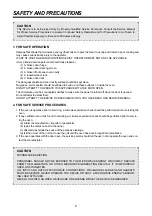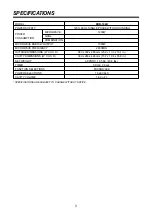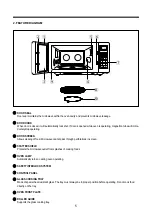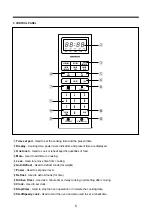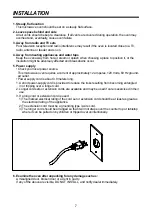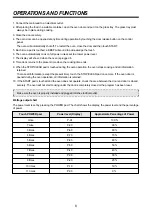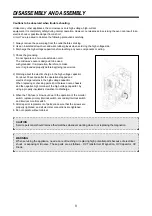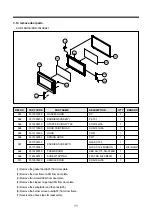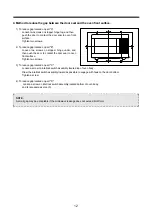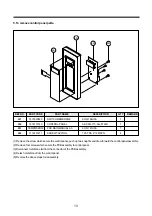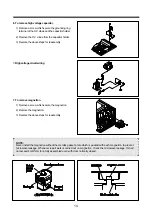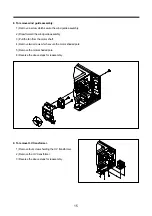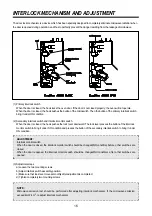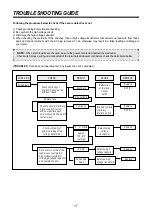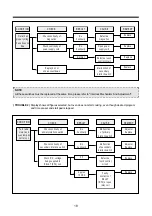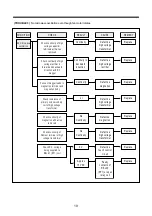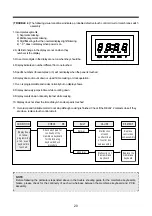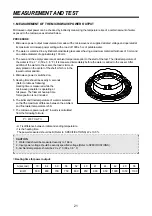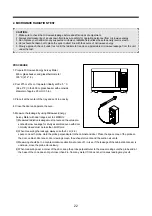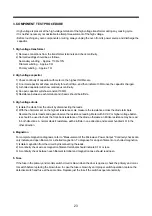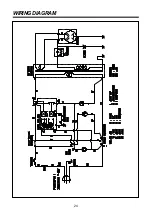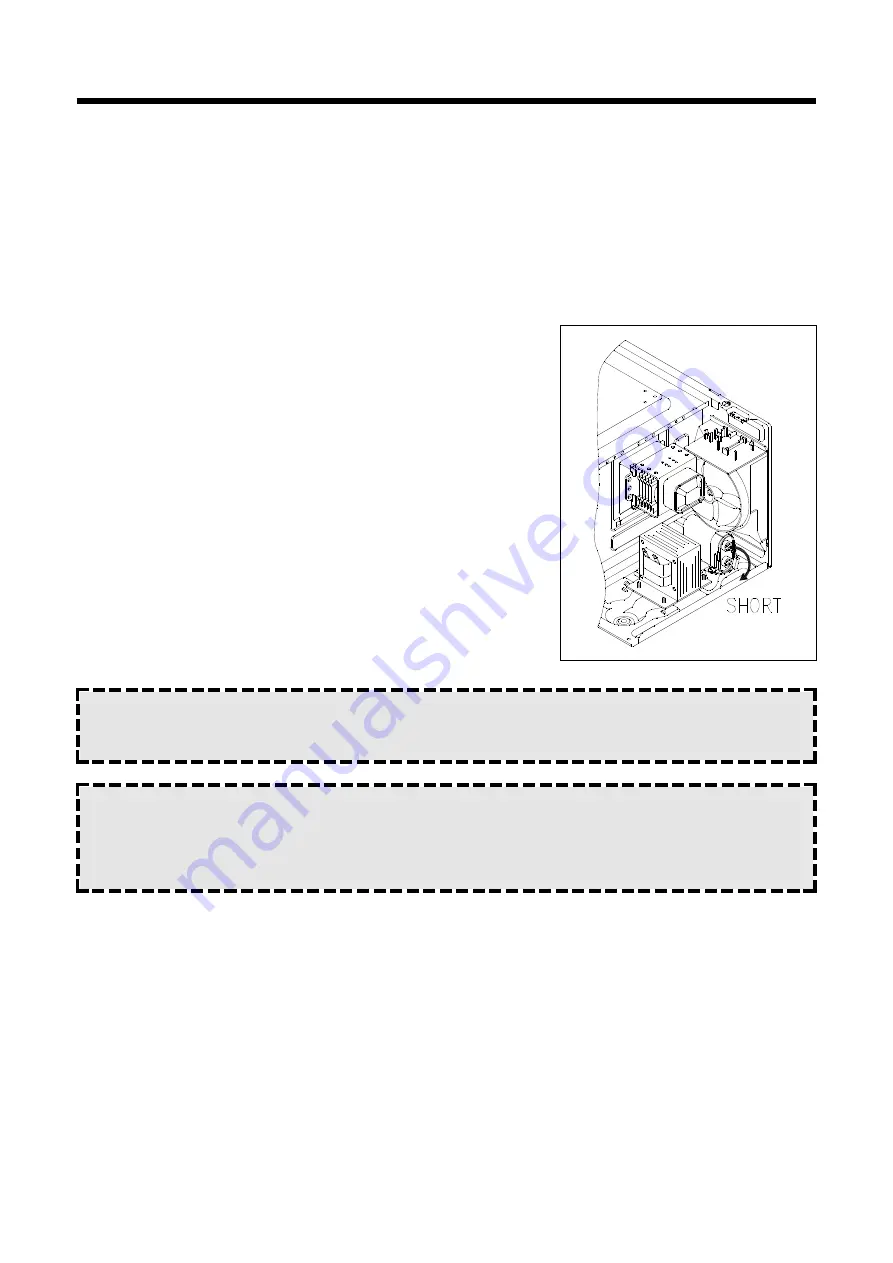
9
DISASSEMBLY AND ASSEMBLY
Cautions to be observed when trouble shooting.
Unlike many other appliances, the microwave oven is high-voltage, high-current
equipment. It is completely safety during normal operation. However, carelessness in servicing the oven can result in an
electric shock or possible danger from a short
circuit. You are asked to observe the following precautions carefully.
1. Always remove the power plug from the outlet before servicing.
2. Use an insulated screwdriver and ware rubber gloves when servicing the high voltage side.
3. Discharge the high voltage capacitor before touching any oven components or wiring.
1) Check the grounding.
Do not operate on a two-wire extension cord.
The microwave oven is designed to be used
with grounded. It is imperative, therefore, to make
sure it is grounded properly before beginning repair work.
2) Warning about the electric charge in the high voltage capacitor.
For about 30 seconds after the operation stopped and
electric charge remains in the high voltage capacitor.
When replacing or checking parts, short between oven chassis
and the negative high terminal of the high voltage capacitor, by
using a properly insulated screwdriver to discharge.
4. When the 15A fuse is blown out due to the operation of the monitor
switch; replace primary interlock switch, secondary interlock switch
and interlock monitor switch.
5. After repair or replacement of parts, make sure that the screws are
properly tightened, and all electrical connections are tightened.
6. Do not operate without cabinet.
CAUTION
Service personnel should remove their watches whenever working close to or replacing the magnetron.
WARNING
When servicing the appliance, need a care of touching or replacing high potential parts because of electrical
shock or exposing microvave. These parts are as follows - HV Transformer, Magnetron, HV Capacitor, HV
Diode.
Summary of Contents for KOR-164H0A
Page 5: ...4 EXTERNAL VIEW 1 OUTER DIMENSION ...
Page 25: ...24 WIRING DIAGRAM ...
Page 27: ...26 ...
Page 29: ...28 2 PCB CIRCUIT DIAGRAM ...



